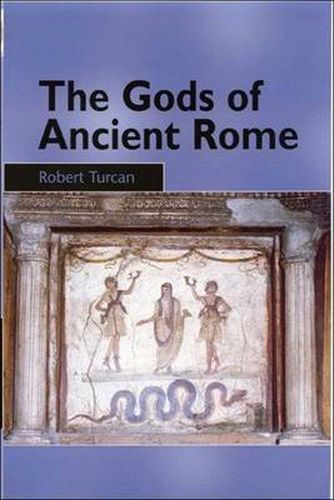Readings Newsletter
Become a Readings Member to make your shopping experience even easier.
Sign in or sign up for free!
You’re not far away from qualifying for FREE standard shipping within Australia
You’ve qualified for FREE standard shipping within Australia
The cart is loading…






This is a vivid account of what their gods meant to the Romans from archaic times to late antiquity, and of the rites and rituals connected with them. After an introduction into the nature of classical religion, the book is divided into three parts: religions of the family and land; religions of the city; and religions of the empire. The book ends with a discussion of the rise and impact of Christianity. For the Romans, the author argues, religion was almost as much a form of insurance as it was a question of belief. The gods were valued according to the degree of protection they afforded against natural hazards and occult powers. They were a crucial source of tactical information in time of war and their approval was vital to the success of agriculture, marriage and childbirth. Appeasing the gods and enlisting their help involved ritual and sacrifice which required the arcane knoweldge of the priesthood. Because there were so many gods, it might be hard to know which one to invoke and perilous to get it wrong. The Romasn took their gods extremely seriously, there was nothing more complicated than a Roman sacrifice or more precise than the preparation of the meal offered to the god; the slightest infringement of the priestly recipe would spoil the feast and might jeopardise the affairs of Rome itself. Robert Turcan shows that Roman attitudes towards the gods continued to be pragmatic throughout the millennium coverd by the book. Useful gods discovered among conquered peoples of the Empire were adopted without rejecting any from the old pantheon. Traditional worship remained strong long after the emperors converted to Christianity, and many of the early Roman Christians maintained a tactful respect for older deities. Up-to-date in its archaeological and epigraphic evidence, and drawing extensively on a wide range of relevant literary material this book is ideally suited for undergraduate courses in the history of Romand and its religions. Its urbane style and lightly worn scholarship will broaden its appeal to non-academic readers with a serious interest in the classical world.
$9.00 standard shipping within Australia
FREE standard shipping within Australia for orders over $100.00
Express & International shipping calculated at checkout
This is a vivid account of what their gods meant to the Romans from archaic times to late antiquity, and of the rites and rituals connected with them. After an introduction into the nature of classical religion, the book is divided into three parts: religions of the family and land; religions of the city; and religions of the empire. The book ends with a discussion of the rise and impact of Christianity. For the Romans, the author argues, religion was almost as much a form of insurance as it was a question of belief. The gods were valued according to the degree of protection they afforded against natural hazards and occult powers. They were a crucial source of tactical information in time of war and their approval was vital to the success of agriculture, marriage and childbirth. Appeasing the gods and enlisting their help involved ritual and sacrifice which required the arcane knoweldge of the priesthood. Because there were so many gods, it might be hard to know which one to invoke and perilous to get it wrong. The Romasn took their gods extremely seriously, there was nothing more complicated than a Roman sacrifice or more precise than the preparation of the meal offered to the god; the slightest infringement of the priestly recipe would spoil the feast and might jeopardise the affairs of Rome itself. Robert Turcan shows that Roman attitudes towards the gods continued to be pragmatic throughout the millennium coverd by the book. Useful gods discovered among conquered peoples of the Empire were adopted without rejecting any from the old pantheon. Traditional worship remained strong long after the emperors converted to Christianity, and many of the early Roman Christians maintained a tactful respect for older deities. Up-to-date in its archaeological and epigraphic evidence, and drawing extensively on a wide range of relevant literary material this book is ideally suited for undergraduate courses in the history of Romand and its religions. Its urbane style and lightly worn scholarship will broaden its appeal to non-academic readers with a serious interest in the classical world.